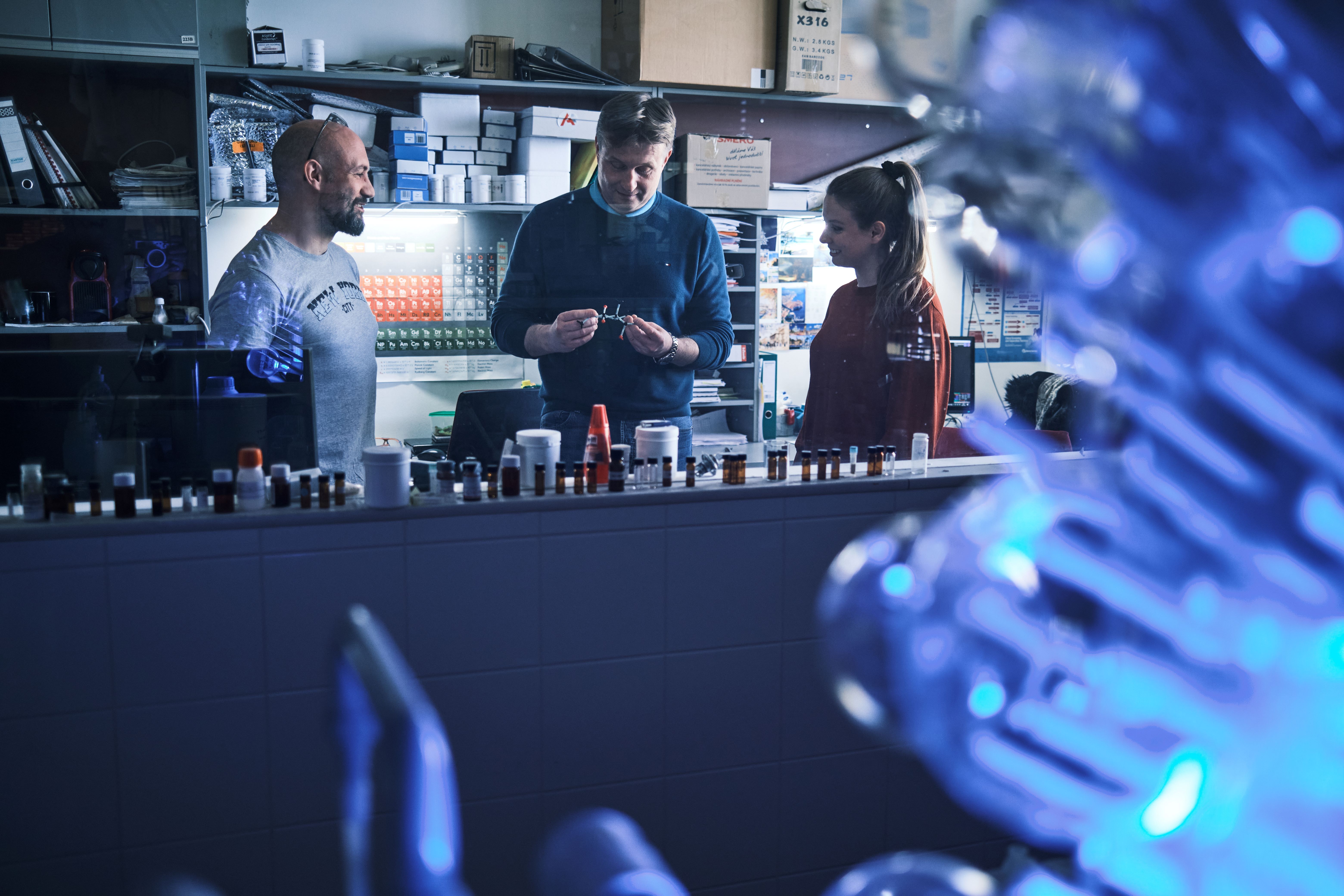SGC recommends the compound MU1742 as a new chemical probe for protein kinases CK1δ and CK1ε, developed in collaboration with the researchers of CasInvent Pharma, a.s.

The Structural Genomics Consortium (SGC) has announced the identification of a quality chemical probe, MU1742, in collaboration with scientists from CasInvent Pharma – the teams led by Assoc. Prof. Kamil Paruch and Prof. Vitezslav Bryja of Masaryk University in Brno, Czech Republic. The probe is designed specifically for the protein kinases CK1δ and CK1ε and comes with the corresponding negative control - compound MU2027.
Casein kinases 1 (CK1) form a family of serine/threonine kinases that play a significant role in regulating various cellular processes. Over 140 substrates have been reported for CK1s, participating in pathways such as Wnt, Hedgehog and Hippo or circadian rhythm signaling, which are essential for development and growth of the organism and homeostasis maintenance. Not surprisingly, deregulation of CK1 activity has been connected to pathogenesis of several malignancies (e.g. acute myeloid and chronic lymphocytic leukemia, breast and pancreatic cancer, malignant melanoma and others) and neurodegenerative disorders (Alzheimer`s and Parkinson`s disease). In general, the kinases are involved in regulation of key cellular processes such as chromosome segregation, gene expression, cellular morphology, migration, membrane trafficking, cytokinesis, autophagy, cell stemness and differentiation, cell survival, proliferation, and apoptosis.
All these make CK1s interesting therapeutic targets, but until now selective small molecule inhibitors of CK1 kinases have not been developed and approved for clinical use. Despite high structural similarity, the individual CK1 isoforms have their distinct functions in cells. Therefore, selective targeting of the isoforms, namely inhibition of the CK1α isoform vs. CK1δ and CK1ε inhibition is now preferred in the development of CK1 inhibiting/degrading compounds in clinical setting.
The chemical probe MU1742 is noted for its high selectivity, and potency against CK1δ/ε both in vitro and in cell-based assays, as well as its acceptable pharmacokinetic profile. At higher concentrations, MU1742 is also capable of inhibiting CK1a. This makes MU1742 a promising tool for in vitro and in vivo applications.
Corporate Headquarters
-
Komenského nám. 220/2
602 00 Brno
Czech Republic -
IČ: 09684221, DIČ: CZ09684221
-
Registration: Companies Register of the Regional Court in Brno, the Czech Republic, Ref. B 8460
General Information
© CasInvent